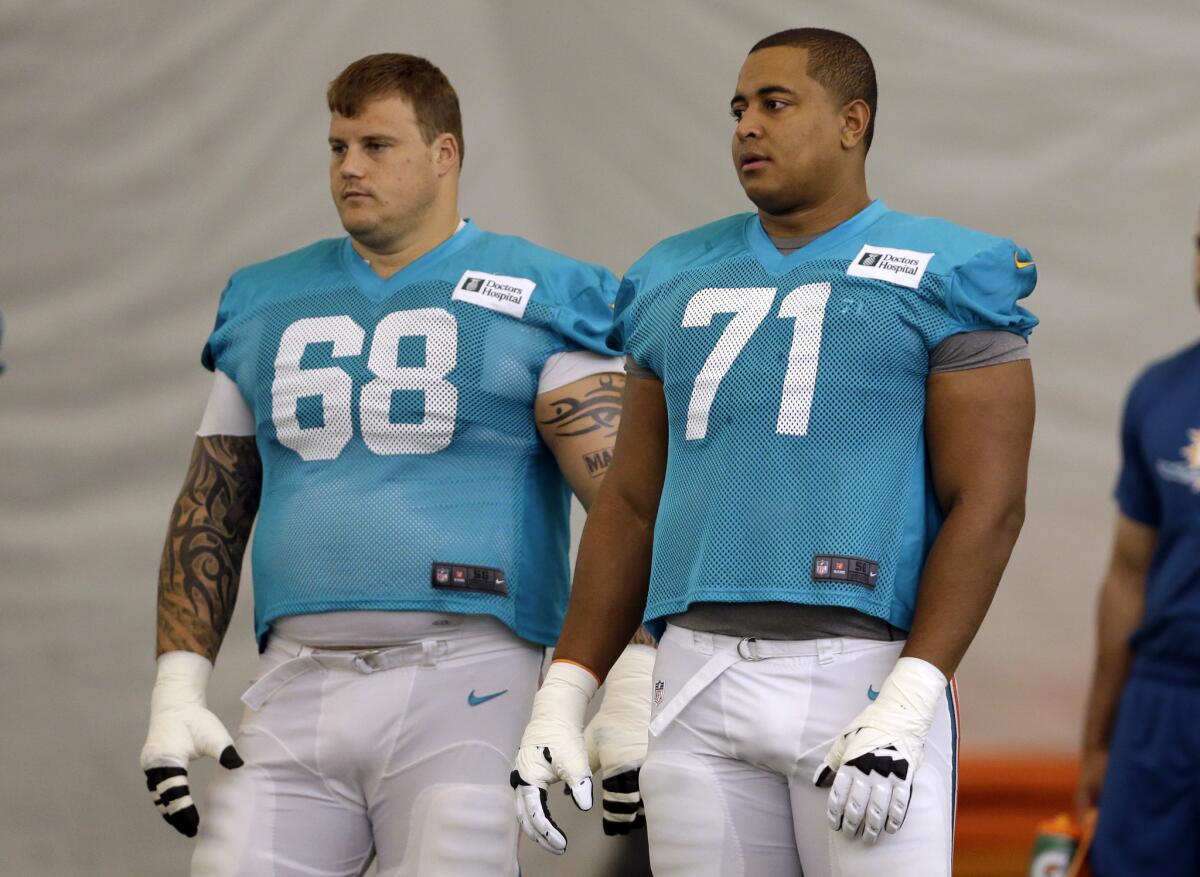Jonathan Martin shows us how a real man acts

Richie Incognito may rank high on my list of despicable human beings, but Iâll give him one thing. The Miami Dolphinsâ bully has ignited another national conversation about what it means to be a man in this era. Itâs an important discussion, notably because Incognitoâs brute characteristics are not on the list, and itâs important for men of all ages to tune in.
âFor generations, just about every boy growing up in America felt obliged to prove his manhood, which generally meant demonstrating physical strength, a disdain for gentility, a willingness and ability to stand up for himself, especially with his fists, and a disregard for anything âsoft,â â writes Neal Gabler in Tuesdayâs Op-Ed pages.
Our view of masculinity has certainly changed. Just look at how the makers of cleaning products have changed the way they market their products. The sexist image of mom cleaning up her kidsâ messes while her buffoon husband sits uselessly on the sidelines has given way to commercials that feature emotionally-involved and capable fathers. Take, for instance, Tideâs âPrincess Dressâ and Bountyâs âSelect-A-Sizeâ commercials. These men are tender, theyâre affectionate. They reflect what it means for a man to support a family in this day and age.
Men have reason to embrace estrogen. A-list actress Natalie Portman married a ballet dancer. TV shows now revolve around stay-at-home dads.
But while our definition of manhood has changed in many ways, the idea of masculinity as muscular hasnât totally evaporated. And thatâs a huge problem for a number of reasons. As the Nationâs Dave Zirin wrote Sunday:
Yet while the NFL, the most popular entertainment in the United States, shapes our world, it also reflects a society steeped in sexism, violence against women and an ethos that reveres physical domination of others, all while affecting that âstiff upper lip.â We all suffer for this state of affairs: the bullies and the bullied, the abusers and the abused. Men commit suicide in the United States at rates three to four times that of women. Men are far more likely to be alcoholics and abusers. Taking your own life or obliterating your brain is seen as preferable to the simple act of asking for help.
So, while itâs maddening to learn the details of Incognitoâs brutal and repugnant bullying of teammate Jonathan Martin, and absolutely nauseating to hear fellow NFL players defend Incognito, we have to keep talking about â or rather, criticizing â the incident so that men across all parts of this country understand that times have changed, even if the NFL hasnât.
And itâs important to celebrate Martin, who went from victim to victor not by flexing his machismo but by blowing a whistle.
âWhatever else Jonathan Martin is the victim of, he has been preyed on by a form of ugly, vestigial, brutalizing masculinity. And he decided to resist it, not with his fists but with a legal process,â writes Gabler. âThat may not seem âmanly,â but it is the way men do things nowadays â real men, that is.â
ALSO:
The NFL doesnât have a monopoly on brutes
The cure for retailers ruining Thanksgiving: A federal blue law
Lesson of Typhoon Haiyan: Tackle climate change, or it will tackle us
Follow Alexandra Le Tellier on Twitter @alexletellier and Google+
More to Read
A cure for the common opinion
Get thought-provoking perspectives with our weekly newsletter.
You may occasionally receive promotional content from the Los Angeles Times.










